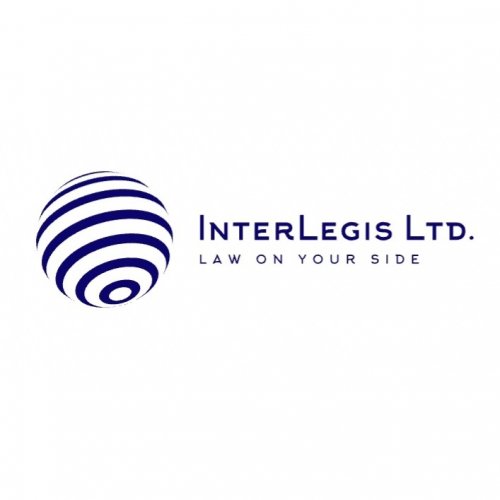Best E-commerce & Internet Law Lawyers in Sofia
Share your needs with us, get contacted by law firms.
Free. Takes 2 min.
List of the best lawyers in Sofia, Bulgaria
About E-commerce & Internet Law in Sofia, Bulgaria
E-commerce & Internet Law in Sofia, Bulgaria, is a rapidly evolving area of legal practice, reflecting the dynamic nature of digital commerce and the internet. Bulgarian legal frameworks are designed to regulate online commercial activities, protect consumers, and ensure privacy in the cyberspace. The laws cover various aspects such as electronic contracts, data protection, intellectual property rights, consumer protection, and online advertising. Businesses and individuals engaging in e-commerce and internet activities should be well-versed with these laws to avoid legal pitfalls.
Why You May Need a Lawyer
There are several situations where individuals or businesses may require legal assistance in the realm of E-commerce & Internet Law:
- Establishing an online business, where understanding regulatory and compliance requirements is crucial.
- Drafting and reviewing e-contracts, terms of service, and privacy policies.
- Addressing data protection and privacy issues, including compliance with GDPR requirements.
- Handling disputes related to online transactions or breach of contract.
- Dealing with intellectual property infringement or unauthorized use of digital content.
- Navigating regulations regarding online advertising and marketing practices.
Local Laws Overview
In Sofia, Bulgaria, e-commerce and internet activities are governed by several key legal frameworks:
- The Law on Electronic Commerce, which regulates online business activities and electronic contracts.
- The Personal Data Protection Act, in alignment with the EU's GDPR, overseeing how personal data is collected and processed.
- The Consumer Protection Act, designed to protect consumers in online transactions.
- The Copyright and Related Rights Act, which protects intellectual property rights in the digital sphere.
- Regulations on unfair competition and advertising to ensure fair digital market practices.
Frequently Asked Questions
What legal structures are available for starting an online business in Bulgaria?
Common options include sole proprietorship, limited liability company (LLC), and joint-stock company. Each has its own advantages and compliance obligations.
How does Bulgarian law regulate electronic contracts?
Electronic contracts are legally binding in Bulgaria. They must comply with the Law on Electronic Commerce and provide clear terms and conditions accessible to consumers before they make a purchase.
What are the GDPR implications for e-commerce businesses in Bulgaria?
E-commerce businesses must obtain clear consent from users for data processing, ensure data security, allow user access to their data, and comply with data breach notification requirements, among others.
What steps should be taken if a consumer rights issue arises from an online purchase?
Initially, try to resolve the issue directly with the merchant. If unsuccessful, consumers can seek assistance from the Commission for Consumer Protection in Bulgaria.
How can I protect my online business’s intellectual property?
Register trademarks, copyrights, and patents with the Bulgarian Patent Office, and include clear copyright and trademark notices on your website to deter infringement.
What should an e-commerce privacy policy include?
A privacy policy should outline what data is collected, how it is used, whom it is shared with, and how users can control their personal information.
What are the penalties for non-compliance with e-commerce laws in Bulgaria?
Penalties can include fines, business operation restrictions, or even legal actions, depending on the severity of non-compliance.
Are there specific advertising regulations for online businesses in Bulgaria?
Yes, online advertising must comply with laws against misleading advertising and ensure that all claims and promotions are factual and substantiated.
What recourse does a business have for online defamation in Bulgaria?
Businesses can pursue legal action for defamation if false statements damage their reputation. This can include seeking injunctions and damages.
How can a lawyer assist with cross-border e-commerce transactions?
A lawyer can ensure compliance with international laws, handle cross-border tax issues, and assist with international dispute resolution.
Additional Resources
For those seeking more information or assistance, consider the following resources:
- Commission for Consumer Protection: Provides guidance and handles complaints related to consumer rights.
- Bulgarian Patent Office: Offers information on protecting intellectual property rights.
- Bulgarian Bar Association: Can help in finding qualified legal professionals specialized in e-commerce law.
Next Steps
If you require legal assistance in E-commerce & Internet Law in Sofia, Bulgaria, consider the following actions:
- Identify your specific legal needs, whether it be contract drafting, compliance, dispute resolution, etc.
- Consult with a lawyer specializing in e-commerce law to understand your rights and obligations fully.
- Utilize online directories or contact the Bulgarian Bar Association for lawyer recommendations.
- Prepare relevant documents and information to facilitate discussions with your legal advisor.
Taking these steps can help ensure that your online business operations comply with the law and protect your interests effectively.
Lawzana helps you find the best lawyers and law firms in Sofia through a curated and pre-screened list of qualified legal professionals. Our platform offers rankings and detailed profiles of attorneys and law firms, allowing you to compare based on practice areas, including E-commerce & Internet Law, experience, and client feedback.
Each profile includes a description of the firm's areas of practice, client reviews, team members and partners, year of establishment, spoken languages, office locations, contact information, social media presence, and any published articles or resources. Most firms on our platform speak English and are experienced in both local and international legal matters.
Get a quote from top-rated law firms in Sofia, Bulgaria — quickly, securely, and without unnecessary hassle.
Disclaimer:
The information provided on this page is for general informational purposes only and does not constitute legal advice. While we strive to ensure the accuracy and relevance of the content, legal information may change over time, and interpretations of the law can vary. You should always consult with a qualified legal professional for advice specific to your situation.
We disclaim all liability for actions taken or not taken based on the content of this page. If you believe any information is incorrect or outdated, please contact us, and we will review and update it where appropriate.











